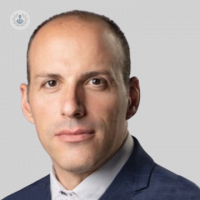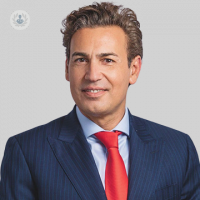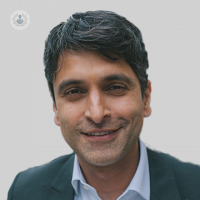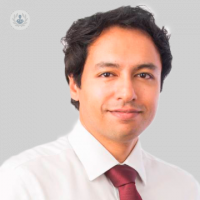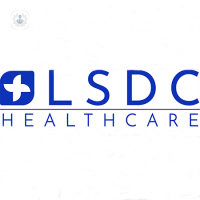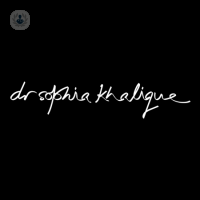What is a heart check-up?
A heart check-up (or heart screening) is used to detect any early heart abnormalities. The doctor will be able to determine if you are at risk of developing heart disease within the next five to 10 years. They will work with you to manage the risk of heart disease by encouraging lifestyle changes (including exercise and dietary adjustments), and in some cases, taking medication.

What risk factors will my doctor look for?
As part of your check-up, the doctor will look for and discuss the following risk factors during your heart health assessment:
- Hypertension (high blood pressure)
- High cholesterol (and other lipid levels)
- Blood sugar levels
- Obesity
- Lifestyle habits, such as smoking and alcohol consumption
- A family history of cardiac disease, including premature coronary artery disease
Are there any risks to having a heart screening?
Screening tests may cause harm as they have the potential to present false results. A false negative may put the patient into a group of people who are less likely to have any heart conditions, which provides false reassurance.
A false positive may put the patient into a group of people who are more likely to have the condition, which can result in anxiety and referral for additional diagnostic tests that may not be necessary.
What heart tests may be made?
If the doctor suspects that you have heart disease, the following may be required:
- Full history and examination
- Body Mass Index (BMI, based on height and weight)
- Blood Pressure
- Electrocardiography (ECG)
- Blood tests, including lipids, diabetes check (HbA1C), kidney function, blood count and inflammatory markers
- Exercise stress test (on a treadmill or stationary bicycle)
- Echocardiography (heart ultrasound scan)
- Stress Echocardiography
- Coronary CT angiography
- Coronary Angiography
At what age should I have a heart check-up?
Health screenings, which includes tests for your heart health should regularly happen between ages 40 - 64. This should be earlier if you have a strong family history of heart disease.
05-26-2017 04-06-2023Heart check up
Dr Andrew Vanezis - Cardiology
Created on: 05-26-2017
Updated on: 04-06-2023
Edited by: Carlota Pano
What is a heart check-up?
A heart check-up (or heart screening) is used to detect any early heart abnormalities. The doctor will be able to determine if you are at risk of developing heart disease within the next five to 10 years. They will work with you to manage the risk of heart disease by encouraging lifestyle changes (including exercise and dietary adjustments), and in some cases, taking medication.

What risk factors will my doctor look for?
As part of your check-up, the doctor will look for and discuss the following risk factors during your heart health assessment:
- Hypertension (high blood pressure)
- High cholesterol (and other lipid levels)
- Blood sugar levels
- Obesity
- Lifestyle habits, such as smoking and alcohol consumption
- A family history of cardiac disease, including premature coronary artery disease
Are there any risks to having a heart screening?
Screening tests may cause harm as they have the potential to present false results. A false negative may put the patient into a group of people who are less likely to have any heart conditions, which provides false reassurance.
A false positive may put the patient into a group of people who are more likely to have the condition, which can result in anxiety and referral for additional diagnostic tests that may not be necessary.
What heart tests may be made?
If the doctor suspects that you have heart disease, the following may be required:
- Full history and examination
- Body Mass Index (BMI, based on height and weight)
- Blood Pressure
- Electrocardiography (ECG)
- Blood tests, including lipids, diabetes check (HbA1C), kidney function, blood count and inflammatory markers
- Exercise stress test (on a treadmill or stationary bicycle)
- Echocardiography (heart ultrasound scan)
- Stress Echocardiography
- Coronary CT angiography
- Coronary Angiography
At what age should I have a heart check-up?
Health screenings, which includes tests for your heart health should regularly happen between ages 40 - 64. This should be earlier if you have a strong family history of heart disease.


Understanding the four stages of congestive heart failure
By Dr Kare Tang
2025-02-05
Dr Kare Tang, one of our top consultant cardiologists, walks us through the four stages of heart failure and offers us an insight into what a treatment plan might look like if you have received a diagnosis. See more
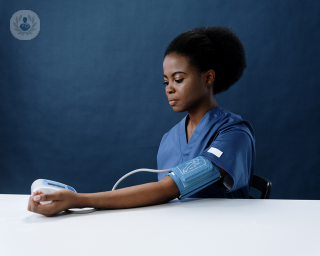

What is hypertension and why should you take notice?
By Dr Mark Thomas
2025-02-05
Hypertension (136/82 blood pressure) is much more common than you might think. Around a third of UK adults have it and many may not even realise. The only way to know is to get tested. Dr Mark Thomas explains what the numbers on blood pressure readings mean and how he can help you if you have been recently diagnosed. See more


Why do South Asians have a higher risk of cardiovascular disease compared to white Europeans?
By Dr Joban Sehmi
2025-02-05
Rates of cardiovascular disease (CVD) naturally vary among people from different ethnicities. But why do South Asians have a higher risk of developing cardiovascular diseases compared to Europeans? And what preventative measures should this community be aware of? Dr Joban Sehmi, one of our top consultant cardiologists in London and Watford explains. See more
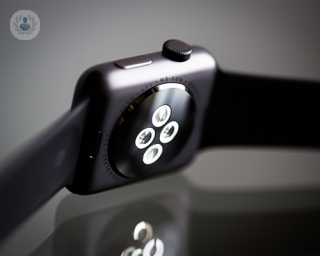

Can you really monitor your heart with your watch?
By Dr Boon Lim
2025-02-04
As mankind races into the future, our technology keeps leaping forward. Innovations like the Apple Watch and Fitbit feature heart rate monitors attached to our wrists, which not only allow us to keep an eye on our fitness, but also open up the possibility of using watches to help spot issues with heart health. Expert cardiologist Dr Boon Lim is here to explain: See more
Experts in Heart check up
-
Dr Nicholas Robinson
CardiologyExpert in:
- Chest pain
- Heart check up
- Angina
- Heart attack
- Stent
- Coronary angiography
-
Dr Rodney Foale
CardiologyExpert in:
- Chest pain
- Coronary angiography
- Coronary angioplasty
- Heart check up
- Hypertension (high blood pressure)
- Valvular heart disease
-
Dr Francesco Lo Monaco
CardiologyExpert in:
- Echocardiogram
- Electrocardiogram
- Heart check up
- Hypertension (high blood pressure)
- Palpitations
- Stress test
-
Dr Ravi Assomull
CardiologyExpert in:
- Heart check up
- MRI
- Preventive cardiology
- Sports cardiology
- Coronary CT
-
Dr Arjun Ghosh
CardiologyExpert in:
- Cardio-oncology
- Shortness of breath
- Chest pain
- Palpitations
- Hypertension (high blood pressure)
- Heart check up
- See all

Cleveland Clinic London Hospital
Cleveland Clinic London Hospital
33 Grosvenor Place, SW1X 7HY
No existe teléfono en el centro.
By using the telephone number provided by TOP DOCTORS, you automatically agree to let us use your phone number for statistical and commercial purposes. For further information, read our Privacy Policy
Top Doctors

LSDC Healthcare
LSDC Healthcare
23 Widegate St, London E1 7HP, United Kingdom
No existe teléfono en el centro.
By using the telephone number provided by TOP DOCTORS, you automatically agree to let us use your phone number for statistical and commercial purposes. For further information, read our Privacy Policy
Top Doctors

Dr Sophia Khalique
Dr Sophia Khalique
101 Harley St, London W1G 6AH
No existe teléfono en el centro.
By using the telephone number provided by TOP DOCTORS, you automatically agree to let us use your phone number for statistical and commercial purposes. For further information, read our Privacy Policy
Top Doctors
-
Cleveland Clinic London Hospital
33 Grosvenor Place, SW1X 7HY, Central LondonExpert in:
- Cardiology
- Colorectal surgery
- Minimal access surgery (keyhole surgery)
- Gallbladder surgery
- Diagnostic Imaging
- Ultrasound
-
LSDC Healthcare
23 Widegate St, London E1 7HP, United Kingdom, Central LondonExpert in:
- Abdominal ultrasound
- Achalasia
- Digestive
- Inflammatory bowel disease
- Gastroenterology
- Acid reflux
-
Dr Sophia Khalique
101 Harley St, London W1G 6AH, Central LondonExpert in:
- Blood test
- Anti-aging
- Cardiology
- Preventive cardiology
- Men's health check
- Cancer screening clinic
- See all
- Most viewed diseases, medical tests, and treatments
- Cardiovascular disease
- Polycystic ovary syndrome (PCOS)
- Cardiac screening
- Respiratory infection
- Osteoporosis
- Menopause support
- Narcolepsy
- Snoring
- Polysomnography (sleep study)
- Alzheimer's disease
